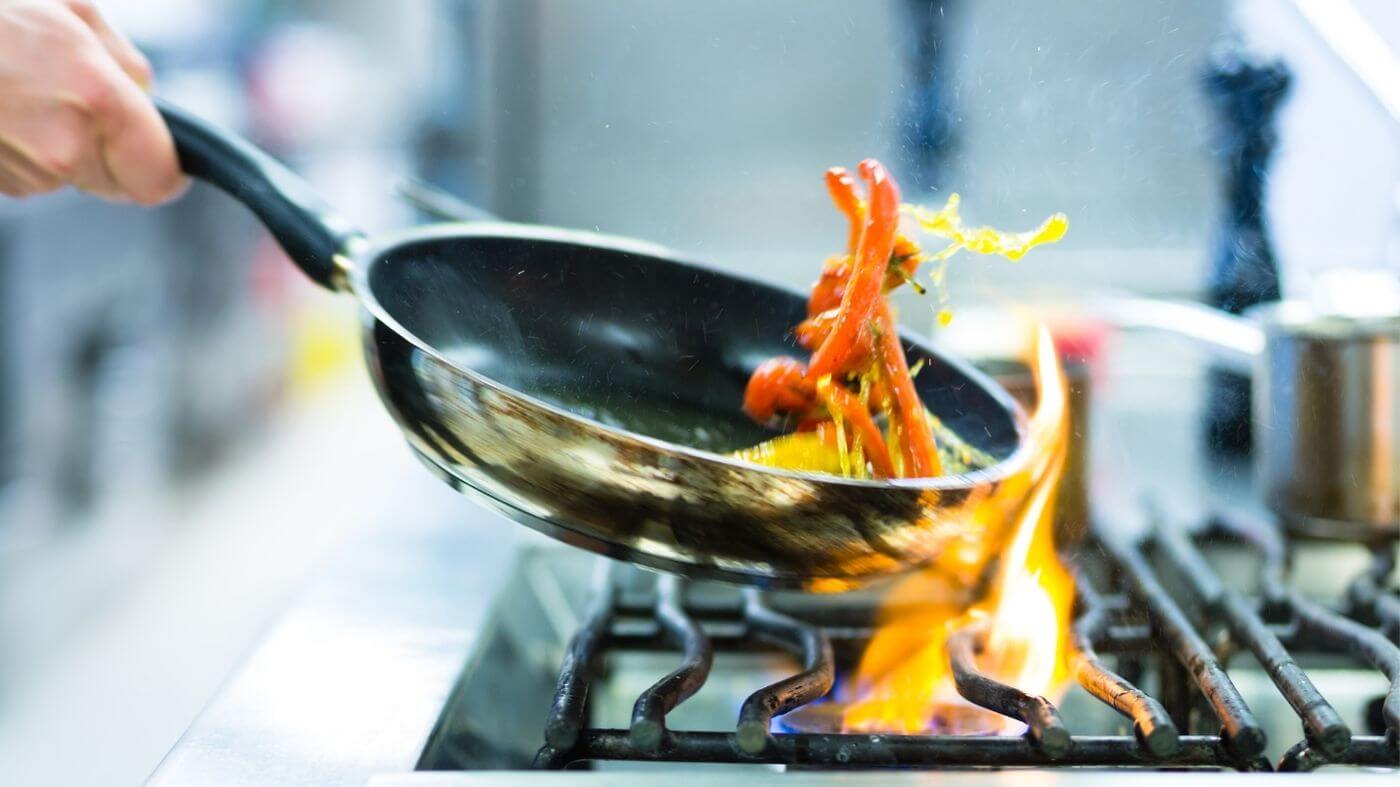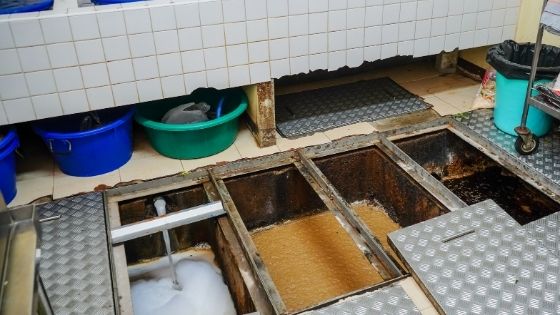Did you know that cooking oil itself isn’t flammable?
You may be wondering: if oil can’t catch fire, how does a kitchen fire start? Well, your restaurant could catch fire in a myriad of ways. One very common way is the grease vapor catching fire.
So, when cooking oil is heated in a pan, high temperatures can ignite a fire. This is because once the vapor it emits reaches its boiling point, it can cause a fire.
In this post, we are providing an overview of the dangers of grease vapors and accumulation.
What Properties do Grease Vapors Have?
The flash point of oil is the temperature at which the vapor of oil will ignite if exposed to an ignition source. The ignition source is the source of heat heating the oil. It can be a deep fryer, an electric stove or a gas burner.
In order for the oil to reach the fire point, the source of the ignition must be hotter than the oil being heated. A liquid is considered flammable if its flash point is less than 60 degrees Fahrenheit.
Fire point is the highest temperature at which oil vapors will continue burning when ignited. The oil vapor will need a continuous source of heat at a certain temperature in order for the burning to continue.

It goes without saying that fire from grease vapors can be a safety hazard in a restaurant kitchen. It can reach your kitchen exhaust system vents and spread to other areas, especially if your vents haven’t been cleaned for some time.
Oil residue is combustible at about 700 degrees. Deep fryer malfunctions or flare-ups from grills can reach this temperature quite easily. If you haven’t maintained your kitchen exhaust system’s ductwork and the cook line catches fire, an incredible fire hazard could be presented.
What Happens when Grease Accumulates in your Vents?
Neglecting to clean your kitchen exhaust system regularly means grease vapor will collect and solidify in your exhaust vents. This can pose a big problem if left unaddressed.
As a restaurant owner, it’s your responsibility to ensure grease buildup in your vents is properly managed.
In addition to the risk of fire, the accumulation of grease in your vents or around your kitchen can also present a host of other problems.
Some of the problems include:
- Increased vermin. Grease can attract vermin, such as rats and drain flies in your restaurant kitchen. Needless to say, this can result in lost business.
- Unpleasant odor. Naturally, a restaurant should smell fresh and clean. It shouldn’t smell dirty or contaminated. Grease that is several days old will have an unpleasant odor.
- Fats, oils and grease (FOG) fines. As a restaurant owner, you have a responsibility of ensuring your grease removal equipment is properly maintained and serviced. If you fail to do so, you risk facing FOG charges.
- Plumbing issues. When grease cools, it hardens into a gelatinous mess. Left unaddressed, this can negatively impact the working of your plumbing system.
- Risk of injury. If you have grease splatters on the floor, it can lead to increased risk of slipping and failing. If an employee injures themselves on the job because of grease on the floor, you’ll have a legal case to deal with!
While it's important to clean your vents and kitchen from grease-related issues, your grease pump also has equal importance.
What Happens when Grease Clogs up Pipelines?
A grease trap is designed to prevent excessive amounts of FOG (fats, oils and grease) from entering the septic system or wastewater. Grease traps, however, need to be cleaned regularly in order to function properly.
Easily clogged pipes are the ones that are connected to the sink trap. A drain that has been clogged up by FOG is certainly an alarming problem. And, there are varying degrees of difficulty in clearing them out.
You will typically know when you have a blocked drain. Here are some of the warning signs of a blocked drain:
- It will begin to run slowly.
- It may make gurgling noises.
- You may begin to notice a nasty lingering smell emanating from the sink.
So, try to take the necessary precautions to pre-empt a serious blockage. But if you notice these signs, you want to take action immediately.

Bottom Line
Taking care of your vents and grease traps will ensure your restaurant kitchen is safer from hazards.
We hope this article about grease vapors was informative, and that you now understand their dangers and take the right steps to create a safe kitchen.
If you’re looking for more help, Greasecycle is here for you. We are a professional grease trap pumping and oil recycling company. We make the dirty clean and the ugly beautiful.
Get in touch with us today to get started!